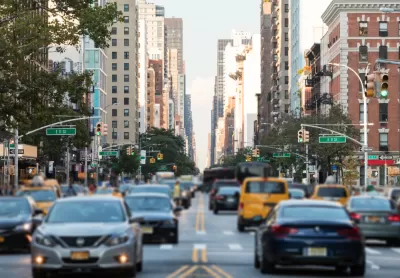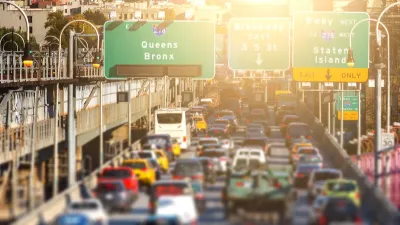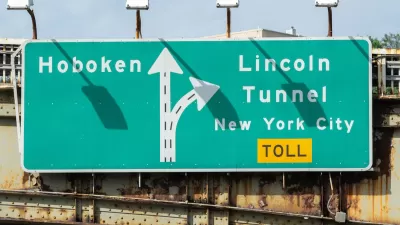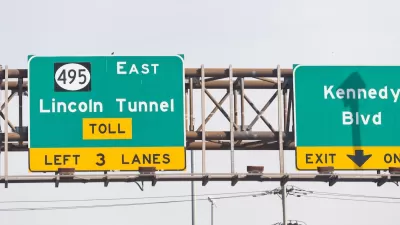Despite the administration’s stated concern for the “working class,” 85 percent of Manhattan commuters use public transit to enter the city.

The U.S. Department of Transportation (USDOT), under new leadership, rescinded federal approval for New York City’s congestion pricing program, eliminating billions in projected revenue for public transit infrastructure in the region, reports Gersh Kuntzman for Streetsblog NYC.
In a letter sent by U.S. DOT Secretary Sean Duffy to Gov. Hochul — first handed out to the Post — the White House revealed that it would pull the congestion pricing approval, granted by the Biden administration under a 34-year-old federal tolling program called the Value Pricing Pilot Program.
The administration expressed purported concern for the “working class,” even though roughly 85 percent of commuters into Manhattan use public transit.
According to Transportation Secretary Sean Duffy, the program is not eligible for the value pricing program “because cordon pricing ‘provides no toll-free option for many drivers who want or need to travel by vehicle in this major urbanized area’ and because he believes that the primary goal of congestion pricing was to raise revenue for the Metropolitan Transit Authority, ‘but the toll rate that is set under VPPP should not be driven primarily by revenue targets.’”
Some New York lawmakers decried the move. In a social media post, state Senator Zellnor Myrie wrote, “Congestion pricing is working — and is critical for the investments we need to make in our public transit system.”
FULL STORY: BREAKING: Trump Withdraws Federal Approval for Congestion Pricing; Hole Blown in Transit Repair Budget

Manufactured Crisis: Losing the Nation’s Largest Source of Unsubsidized Affordable Housing
Manufactured housing communities have long been an affordable housing option for millions of people living in the U.S., but that affordability is disappearing rapidly. How did we get here?

Americans May Be Stuck — But Why?
Americans are moving a lot less than they once did, and that is a problem. While Yoni Applebaum, in his highly-publicized article Stuck, gets the reasons badly wrong, it's still important to ask: why are we moving so much less than before?

Research Shows More Roads = More Driving
A national study shows, once again, that increasing road supply induces additional vehicle travel, particularly over the long run.

How Protecting Kauaʻi’s Forests Safeguards Fresh Water
A University of Hawaiʻi study shows that protecting Kauaʻi’s native forests from invasive species significantly boosts groundwater recharge, making it a cost-effective strategy to secure fresh water and enhance climate resilience.

Gary, Indiana to Expand Transit Service, Bike Share
The city plans to launch a bike share system in April and expand service on its bus routes.

Pittsburgh Rolls Out Electric School Buses
Pittsburgh Public Schools has launched its first electric school buses, with plans to fully electrify its fleet over the next 14 months, aiming to create a cleaner, more sustainable transportation system supported by new charging infrastructure.
Urban Design for Planners 1: Software Tools
This six-course series explores essential urban design concepts using open source software and equips planners with the tools they need to participate fully in the urban design process.
Planning for Universal Design
Learn the tools for implementing Universal Design in planning regulations.
City of Moreno Valley
Institute for Housing and Urban Development Studies (IHS)
City of Grandview
Harvard GSD Executive Education
NYU Wagner Graduate School of Public Service
City of Cambridge, Maryland
Newport County Development Council: Connect Greater Newport





























